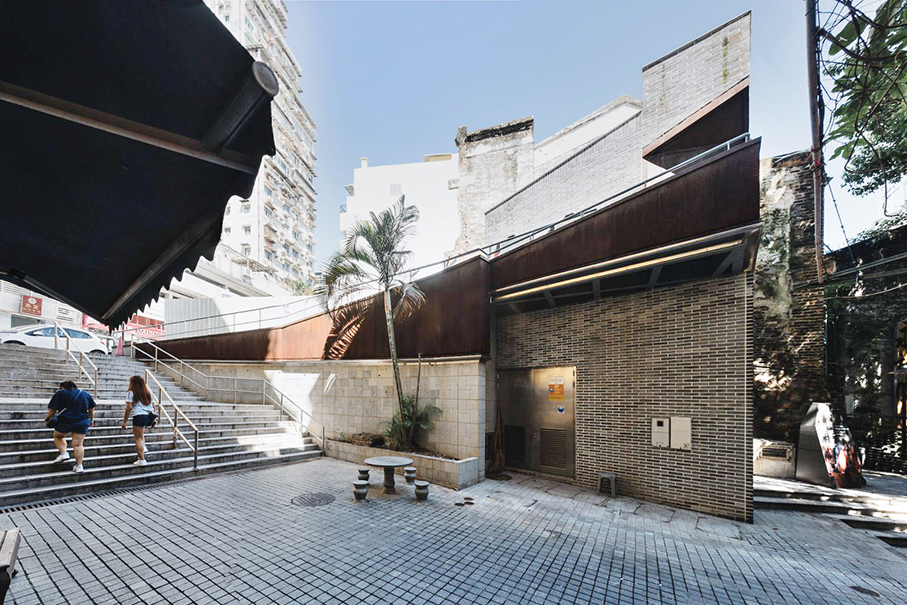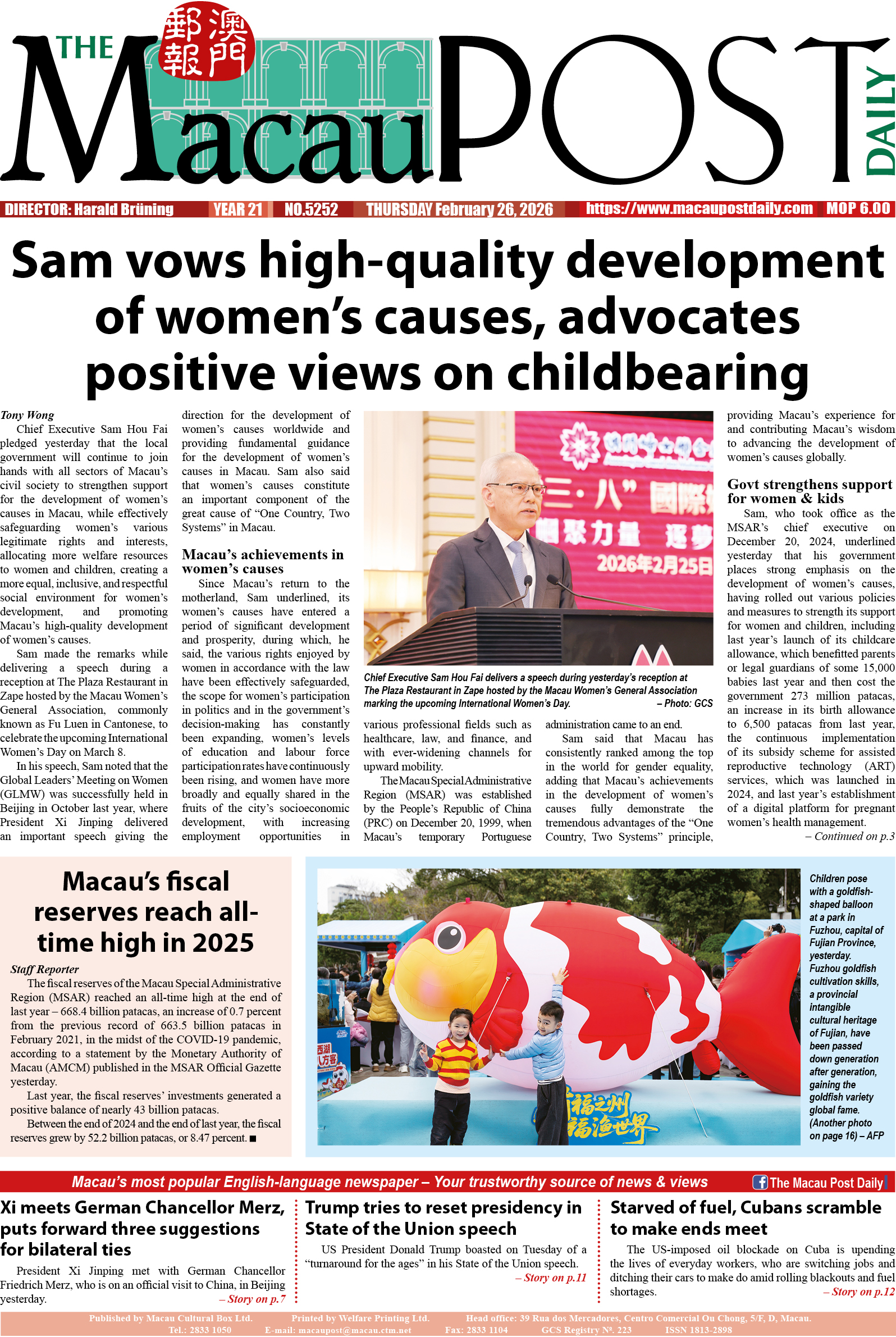A plaque unveiling ceremony of an M30 Integrated Infrastructure for Power Supply and Waste Collection that won the UNESCO Award for New Design in Heritage Context 2022 was held on Thursday at the Heritage Houses of Pátio da Eterna Felicidade.
The infrastructure was designed by Macau based architects and urban planners Rui Leão and Carlotta Bruni,and the award was established in 2000, which aims to select the best practices in conservation and design areas.
The infrastructure is located in a small sloped piazza above a narrow passage at the bottom of the Beco dos Faitiões courtyard, a government service building in the old part of Macau near the Ruins of St. Paul’s, accommodating a waste collection station and a transformer room commissioned by two municipal entities.
During the ceremony, Leão said in his speech that the place where the project is located is of enormous historic relevance, where the manifestations of Chinese and Portuguese urbanism meet, which celebrates the physical coexistence of two civilisations’ building construction in the same city over the centuries.
Leão said it took five years to push forward their vision, which indicates their team’s resilience and determination, adding that his vision for the facility was to make a dialogue with the old buildings, with a systematic use of the same Chinese bricks, the same fabric of the old houses of the patio, just like “two bodies sharing the same skin”.
According to the M30 jury, the project adroitly navigates a challenging setting on a tight urban lot in the buffer zone of the Historic Centre of Macau World Heritage site to create an interplay with the neighbouring houses and public space.
The building is an example of “innovative new design in a world heritage context”, according to UNESCO. The Conservation of Cultural Heritage in Asia-Pacific prizes were awarded in Bangkok in 2022.

This undated handout photo provided by the UNESCO shows the awarded M30 Integrated Infrastructure for Power Supply and Waste Collection in Beco dos Faitiões courtyard.









